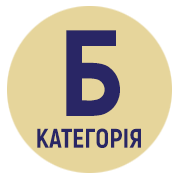EDUCATIONAL AND SOCIAL DEVELOPMENT OF UKRAINE DURING THE COSSACK TIMES IN THE 16TH–18TH CENTURIES
DOI:
https://doi.org/10.32782/3041-1351/2024-2-16Keywords:
Cossacks, republic, social status, education, upbringingAbstract
Introduction. The article highlights the evolution of social and state-building processes that took place during the Cossack era in Ukrainian history and their impact on the formation, development, and diversification of the cultural and educational level of the Ukrainian community. This study covers the period from the emergence of the first Zaporizhian Sich settlements to the existence of Ukrainian state formations in the 18th century. Purpose and Objectives of the Article. The aim is to explore and demonstrate the logical historical connection between the formation and evolution of Ukrainian Cossack statehood and the cultural and educational development of the society of that time. Results. In the 16th century, the Ukrainian Cossacks emerged as a distinct social community. Initially driven by socio-economic motivations to independently settle and control vast steppe territories, the Cossack society developed democratic principles of communal existence based on brotherhood, equality, openness, mutual respect, military professionalism, and discipline. This laid the foundation for the process of establishing and shaping of their own statehood, in sccordsnce the necessary institutions of governance and social structure. As the military, economic, political, and social activities of the Zaporizhian Sich became more complex and diverse, the need to enhance the cultural and educational level of the Ukrainian Cossacks arose. Their periodic interactions with official representatives of neighboring states, as well as informal daily contacts, required a certain level of education. The realities of democracy and independence created the conditions for the initial emergence of educational processes, eventually leading to the establishment of a formal education system for the younger generation of Cossacks. This development allowed for a comprehensive cultural and educational process to begin, despite constant military readiness and ongoing wars. Initially, it took root in the Sich and later spread across the territories controlled by the Zaporizhian Host. In accordance with the philosophy and worldview of Cossack life, a structured educational system emerged. A young boy would begin his training as a djura (squire) under the guidance of experienced Cossacks, where he learned resilience, perseverance, unwavering courage, endurance, a healthy lifestyle, and the highest moral qualities of a Cossack-knight. At the same time, Sich schools and brotherhood schools were established, where, alongside with military training and literacy, students were taught singing, music, and painting. Those who showed academic promise were sent to study at the Kyiv-Mohyla Academy, while the most gifted were further educated at European universities. By the 16th century, Cossack registers frequently included the title «bachelor» next to the names of enlisted Cossacks. After graduating from the Kyiv-Mohyla Academy, young Cossacks returned to Sich to reaffirm their knighthood and bravery while also applying their acquired knowledge as assistants to senior officers. The existence of an independent Cossack state in the 17th century enabled the establishment and expansion of a network of schools operating in regimental and company towns across Ukraine. These schools provided general education where young Ukrainians learned about their homeland, its heroic past, and significant political and state events in Ukrainian lands. Education in these institutions encompassed intellectual, moral, aesthetic, and military-sports training, among other disciplines. Within a few decades, literacy become widespread among Cossacks, townspeople, and commoners. This high level of education provided a strong foundation that, in the second half of the 19th and early 20th centuries, played a crucial role in shaping one of the prominent European nations of Eastern Europe.
References
Вирський Д. Річ Посполита про козаків (1560-і – початок 1650-х рр.). Київ : Інститут історії України, 2021. 288 с.
Гаврилюк В.Ю. Козацьке виховання та засоби його актуалізації в умовах освітніх змін і суспільних викликів. Народна освіта. Електронне наукове фахове видання. URL: https://www.narodnaosvita.kiev.ua/?page_id=5455
Гійом Левассер де. Боплан. Опис України. Українські козаки та їхні останні гетьмани; Богдан Хмельницький. Львів : Каменяр, 1990. 300 c. : іл.
Гуржій О., Чухліб Т. Козацька Україна. Історія Гетьманської держави (XVII–XVIII ст.). Київ : Арій. 2020. 368 с.
Золочевський В. В. Українська козацька педагогіка про фізичне виховання й загартування особистості. Засоби навчальної та науково-дослідної роботи. 2008. Вип. 28. С. 44–49.
Козацька педагогіка і навчально-виховний процес у закладах освіти : науково-методичний збірник / укл.: В.Є. Берека, І.К. Гіджеліцький, Н.М. Орловська. Кам’янець-Подільський : Вид. ФОП Зволейко Д.Г., 2018. 472 с., іл.
Колупаєва А. А., Таранченко О. М. Інклюзивна освіта: від основ до практики: монографія. Київ : ТОВ «АТО-ПОЛ», 2016. С. 15–17.
Левківський М.В. Історія педагогіки. Житомир : Вид. ЖДУ ім. І. Франка, 2010. С. 80–96.
Луценко М. Education in cossack traditions as the basis of national education. Modern Engineering and Innovative Technologies. 2022. № 2(23-02), 112–116. https://doi.org/10.30890/2567-5273.2022-23-02-042
Петрук Л., Терешко Л. Традиції козацької педагогіки як засіб соціально-педагогічного виховання. Актуальні проблеми вітчизняної та всесвітньої історії. Наукові записки Рівненського державного гуманітарного університету. 2008. Вип. 13. С. 8–10;
Петрук Л. П. Історичні аспекти становлення та розвитку національної системи освіти і виховання в Україні. Актуальні проблеми вітчизняної та всесвітньої історії. Наукові записки Рівненського державного гуманітарного університету. 2011. Вип. 21. С. 167–176.
Ржевська А. С. Козацька Україна в історико-педагогічному ракурсі. Вісник Львівського університету. Серія педагогіка. 2003. Вип. 17. С. 204.
Руденко Ю. Д., Губко О. Т. Українська козацька педагогіка : витоки, духовні цінності, сучасність : навч. посіб. Київ : МАУП, 2007. 342 с.
Скрипник А. Ю., Кабачинський М. І. Історія української державності : навч.-метод. посіб. Кам’янець-Подільський. Тернопіль: ЗУНУ. 2023. 437 с.
Терешко Л. В,. Терешко Ю. М. Козацтво як культурно-історичний феномен. Актуальні проблеми вітчизняної та всесвітньої історії. Наукові записки Рівненського державного гуманітарного університету. 2008. Вип. 13. С. 10–13.
Шевчук В. Козацька держава як ідея в системі суспільно-політичного мислення XVI–XVIII століть. У 2-х кн. Kиїв : Кліо, 2019. 1120 с.
Яворницький Д. І. Історія запорозьких козаків. Т. 1. Київ : Освіта, 1990. 250 с.




